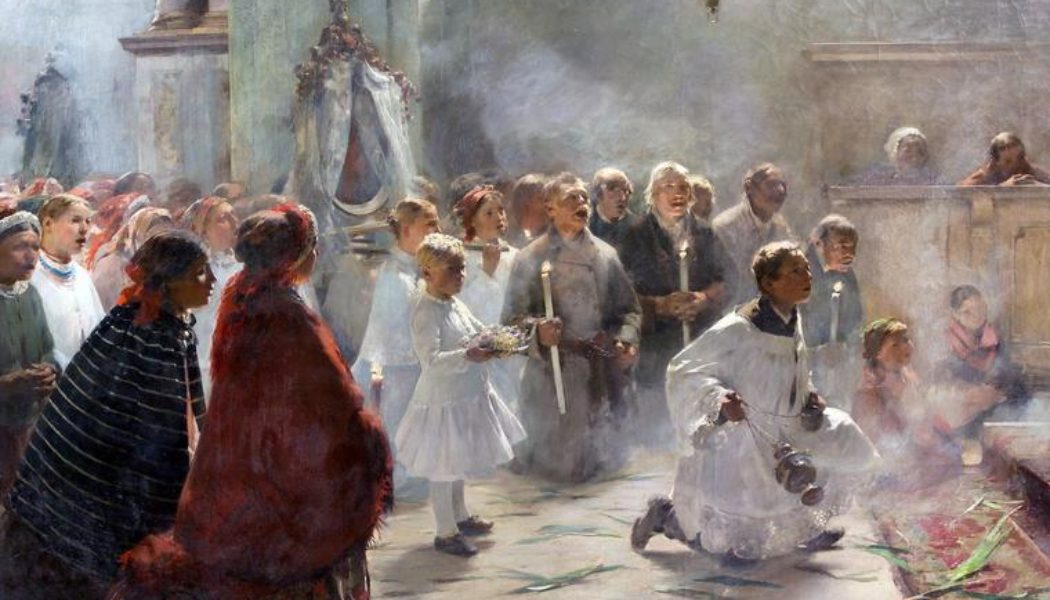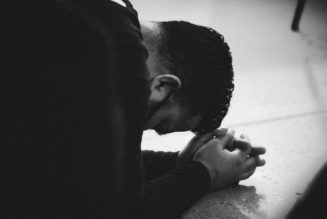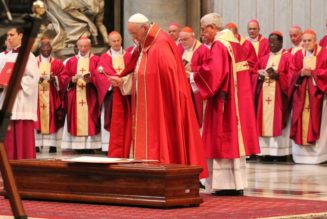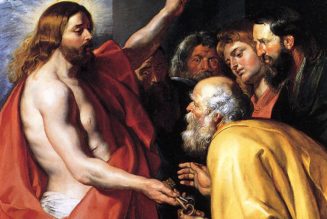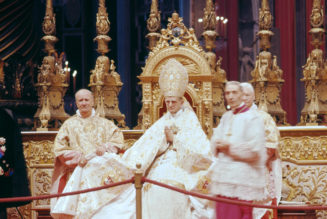
We honor Almighty God by arriving for Mass ahead of time and blessing ourselves as we enter our Father’s house.
Writing in Niedziela [“Sunday”], one of the two national Catholic weekly newspapers in Poland, Father “A.P.” made these thought-provoking observations about punctuality for Mass:
The later we show up in church before Mass, the later we enter into a genuine climate of prayer. Some people like to reckon how late they can be for the Mass to “count.” Remember that the Mass is one whole, from the sign of the cross at the start of Mass until the blessing at its end: one cannot say he was ‘at Mass’ if one was only there for parts of it. It’s not just a formality: it’s better that you wait until the Lord comes and you meet Him at the altar rather than the other way around. When I am late for Mass, it’s not that I am waiting for God but that God is waiting for me. Arriving at the last minute means that you need extra time to orient yourself and join in the liturgical action. You might not then hear some important words God is saying to you. So just don’t not be late: make an effort so that it’s you who waits for the Lord.
He also added these reflections about blessing ourselves as we cross the church’s threshold:
It is worthwhile reminding yourself when you enter the Father’s house (which is a temple), that you are a child of God. That childhood began at the moment of your Baptism, when the water poured in the baptismal font cleansed you from sin and gave you new life. There is placed at the entrance to the church a bowl with holy water so that, upon entering the church to meet God, you would remind yourself of your Baptism and wash yourself of your sins. Do you make still make use of the stoup and holy water at the church door? Perhaps if you reminded yourself of your Baptism and washed away your sins, you might enter with a clean heart into the holy mystery of faith? Perhaps if you made a clear sign of the cross on your body with your hand immersed in holy water, the grace of Baptism might be renewed in you? These are, of course, but gestures which can, but do not have to, help you pray at Mass. But why should you not make use of them when they have helped whole ranks of Christ’s disciples over the centuries? Enter the church like a Christian rather than a pagan. It will markedly change your presence and behavior in that temple [translation mine].
I cite these two passages for two reasons: first, the ideas themselves are worth our taking them on board. And second, they clash with the ethos in not a few American parishes.
The latter observation comes from experience. Just last Sunday, I visited a nearby parish where, frankly, I found praying before Mass subordinate to socializing. I know there are even “liturgists” who imagine such chattering “facilitates community” and do not discourage it. I hint at my age when I mention that the examination of conscience given once upon a time to first penitents asked, “Did I talk in church?”
Now I’m not against talking in church, as long as we get our priorities right. When we arrive in church, the first conversation we need to have is with God, i.e., in prayer. The church is the house of God: we are not in queue, making chitchat with our fellow reception liners, waiting to make a formal handshake with God.
“But what about community?” you say. Fine: have a Dunkin’ Donuts feast after Mass. Stay and talk until the cows come home. (Do ask the pastor about that.) But first things first: our conversation needs to go vertical before it goes horizontal.
I note this because, after having translated the Niedziela passage, I found a story about arriving late for Mass in the Claretian monthly, U.S. Catholic. For years, the magazine has run a feature that I think embodies proto-synodality-run-amuck: it takes a phenomenon and then asks people what they think of it, usually without challenging the results. In October 2018, Father John Molyneux assured us, “It’s OK to be late for Mass. Showing up is what matters.”
No, it’s not.
The Mass is not primarily about us, and we “useless servants” are not doing God a favor. Such disrespect would never be foisted on somebody in “real” life: I was supposed to meet the President at 10am and they said to be at the White House at 9:45am but I showed up at noon and, hey, “showing up is what matters.”
The reactions Molyneux cites and the commentators who followed it also started with the “me” focus: for them, the primary problem with arriving late for Mass is “not being greeted and welcomed.” Forget Father A.P.’s quaint notion that it’s God you’re keeping waiting.
It’s not accidental that the Polish priest connected punctuality for Mass with blessing oneself: both emphasize the holiness of this place as the house of God. Once upon a time, parents trained children how to behave in someone’s house. How should God’s children behave in his home?
Well, the “horizontalists” will tell us that “it’s our home, too.” Hopefully, when adult children return to their parents’ home, they understand how to respect where and how they belong there, i.e., they have progressed beyond entitled, spoiled brats fixated on self.
The notion of the holiness of the church’s place was also touched upon in a story on an Italian website, criticizing how the Brescia Cathedral was turned one Saturday into a conference and lunch hall for a Catholic group. “Preference for the poor” is not an excuse for collapsing the abiding sacral and cultic dedication of a church: the city did not lack other appropriately capacious venues for a Caritas lunch. The argument is simpler: sacrality dedicated exclusively to cult is passé. Andrea Zambrano summed it up: it’s “consistent with the relativism that has also overrun the sacred and the environments of worship: today incense, tomorrow dumplings with sauce.”
Let’s not even ask about the message sent by the sell-off of former churches that have now become venues for secular, even vulgar purposes or other religious cults.
We need to recover a sense of the sacred. It starts with me, arriving for Mass ahead of time and blessing myself as I enter the Father’s house.
